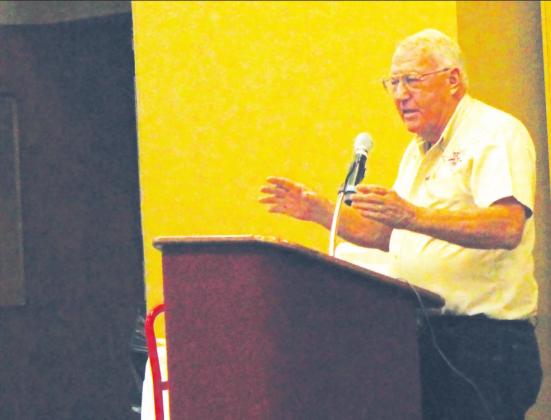‘Take time to know your soil’
Thursday Sept. 2, the Northeast Texas Farmers Co-op met to discuss the best fall seed and winter foraging grass for beef cattle, when to fertilize, when to harvest, when to feed and how much, as well as the total cost of grazing on different types of grass, such as Bermuda, Bahia and Rye.
Also discussed was what supplemental minerals are best to use and when the best time is to vaccinate and deworm.
Everything recommended by the co-op had been tested by the Farmers Co-op including fertilizers that contain nitrogen, phosphorus and potash.
Donnie Peters shared that soils with a pH level below 5.5 tend to have problems with aluminum and manganese toxicity.
“Take time to know your soil and what it needs,” Peters said.
Seed currently available at the Farmers Co-op include white cloud clover, TAMTBO grass, Black Hawk clover, Ball clover and Deer Atlantic clover.
Deer Atlantic Clover is best planted in January is reliant on nitrogen and water to develop a good root system.
Donnie Peters spoke on the benefits of Rezilon, a pre-emerge herbicide with a 6-month lifespan that produces horse quality hay.
Peters also shared that antibiotics will be by prescription only at the end of next year and the best time to vaccinate is after the first killing freeze so that they don’t pick up more parasites during the winter time.
Peters also mentioned that the best time for cows to calve, in his opinion, is in January or February based on how much grass was available to graze on. Calves that are born in September or October are starving by November if farmers aren’t supplementing with hay and other feed.


